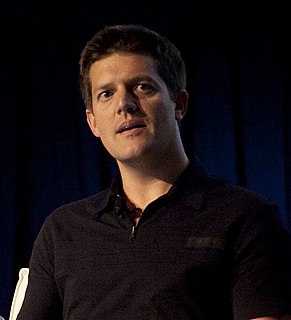A Quote by Michael Porter
Businesses must reconnect company success with social progress. Shared value is not social responsibility, philanthropy, or even sustainability, but a new way to achieve economic success. It is not on the margin of what companies do but at the center. We believe that it can give rise to the next major transformation of business thinking.
Quote Topics
Related Quotes
My primary early interest was in marketing and my aim was to improve its theories, methods and tools. Early on I pressed companies to adopt a consumer orientation and to be in the value creation business. I didn't pay much attention to the social responsibilities of business until later. Now I am pressing companies to address the triple bottom line: people, the planet, and profits. I found that companies were too much into short term profit maximization and they needed to invest more in sustainability thinking.
Business is the most powerful force in society. It has the highest potential for solving social problems. Once consumers saw examples of prosperous companies integrating social concerns into their business practices, they were emboldened to demand the same of other businesses. Businesses could no longer say it was impossible.
Collective insurance policies and social protections have given way to the forces of economic deregulation, the transformation of the welfare state into punitive workfare programs, the privatization of public goods and an appeal to individual accountability as a substitute for social responsibility.
Social enables word of mouth at an unprecedented scale. Its most powerful effect, through reviews and recommendations, is to put product quality and value for money as the key to success in commerce. Social brings a level of transparency that prevents marketers from advertising their way to success without underlying product quality.
Often, there is no correlation between the success of a company's operations and the success of its stock over a few months or even a few years. In the long term, there is a 100 percent correlation between the success of the company and the success of its stock. This disparity is the key to making money; it pays to be patient, and to own successful companies.
I admire companies that have a purpose, passion, and performance. I am a fan of Unilever under its CEO Paul Polman, not only for the company's insights into women and men when they buy beauty products or skin products (the DOVE woman, the AXE man), but also as a company seeking to achieve both growth and practicing social responsibility.
I used to be opposed to the idea of social entrepreneurship. I said, you know, let business be business, and philanthropy be philanthropy. Keep the two separate, don't mix it up, and this is what I did, and I did that rather successfully, but I now recognize that actually you do need to mix it up and I think there is room for social entrepreneurship.



































